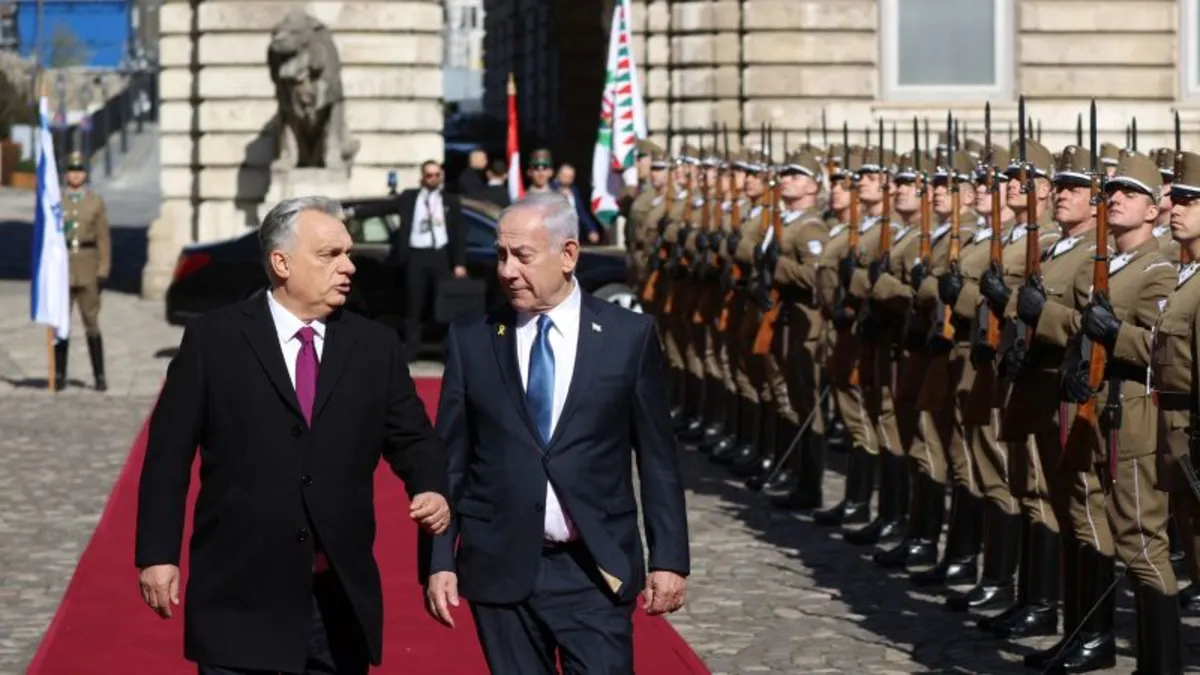
Hungary's Withdrawal from the International Criminal Court (ICC)
In a significant political move, Hungary announced its decision to withdraw from the International Criminal Court (ICC), as confirmed by the country's government on Wednesday. This announcement came shortly after Prime Minister Viktor Orban welcomed Israeli Prime Minister Benjamin Netanyahu to Budapest. Notably, this visit marked Netanyahu’s first appearance on European soil since the ICC issued an arrest warrant against him in May 2024.
The ICC issued an arrest warrant for Netanyahu based on allegations that he bears criminal responsibility for serious offenses, including war crimes such as “starvation as a method of warfare” and crimes against humanity involving murder, persecution, and other inhumane acts. As the ICC lacks its own enforcement mechanisms, it depends on member states to execute arrests and transfer suspects to The Hague. As a signatory of the Rome Statute, which established the ICC in 2002, Hungary is legally obligated to arrest individuals like Netanyahu. However, during his four-day visit, Netanyahu received a warm reception instead.
During a ceremonial event at the Lion's Court of the historic Buda Castle, Netanyahu was greeted with a red carpet as he walked alongside Viktor Orban. This display of camaraderie underscores Hungary's position as one of Israel’s staunchest allies in Europe, where a strong pro-Israel sentiment resonates among many Hungarians. Throughout Budapest, stickers and posters commemorating the victims of the October 7 terror attack against Israel have become commonplace. Notably, a Holocaust memorial on the banks of the River Danube, located near the Hungarian Parliament, has been adorned with yellow ribbons, symbolizing support for hostages held in Gaza.
According to Hungary’s State Secretary for International Communication and Relations, Zoltan Kovacs, the country will begin the withdrawal process from the ICC on Thursday, citing adherence to Hungary's constitutional and international legal obligations. If the withdrawal proceeds as planned, Hungary will become the only European Union nation not affiliated with the ICC. The EU has experienced a divided response regarding the arrest warrants issued by the ICC, with countries like Ireland and Spain stating they would comply with an arrest should Netanyahu enter their territories. In contrast, nations such as France and Germany offered more cautious responses, questioning the ICC’s jurisdiction over Israel, which is not a member of the court.
The ICC's warrant for Netanyahu and former Israeli Defense Minister Yoav Gallant marked a controversial moment, as it was the first time the court targeted a leader from a close ally of the United States. This action places Netanyahu alongside figures like Vladimir Putin, for whom the ICC issued a warrant due to the ongoing war in Ukraine, as well as Libyan leader Moammar Gadhafi, who faced similar charges before his capture and death in 2011. The United States, under both President Joe Biden and former President Donald Trump, has criticized the ICC's decisions. Notably, Trump imposed sanctions against the court's personnel involved in investigations against U.S. citizens and allies.
In addition to the warrants for Netanyahu and Gallant, the ICC has also issued arrest warrants for three senior leaders of Hamas: Yahya Sinwar, the leader in Gaza; Mohammed Diab Ibrahim al-Masri, known as Mohammed Deif, leader of the Al Qassem Brigades; and Ismail Haniyeh, the political leader of Hamas. All three have reportedly been killed by Israeli forces amid the ongoing conflict in Gaza.
As the situation unfolds, Hungary's withdrawal from the ICC raises questions about the future of international justice and the implications for European Union unity on matters related to war crimes and humanitarian law.